Kunal Gupta's Blog, page 5
January 18, 2025
How to Monopoly

The first time I played the game, I was seven.
The game wasn’t new—its box corners were worn, the lid barely clinging on, a hand-me-down from my cousin. But it felt like a treasure to me. Little did I know then that this game would become more than just a pastime—it would become a mirror, reflecting lessons on competition, relationships, and the art of knowing when something is complete.
Recently, while in Melbourne for the Australian Open, I stumbled across Monopoly Dreams, a physical tribute and museum of sorts dedicated to one of the most popular games of all time. As I wandered through its halls, surrounded by oversized dice and glowing property cards, my eyes widened in a way they hadn’t in years. Suddenly, I was back in that world—the wheeling, dealing, scheming world of my childhood.
I didn’t just love Monopoly as a kid—I lived for it.
I forced my sister, cousins, and friends to play endlessly. I wasn’t playing for fun; I was playing to win. I studied patterns, perfected strategies, and approached every game with surgical precision as well as a ten-year-old could.
Secure the blue or orange properties first. Negotiate deals as quickly as possible. Always keep cash on hand. My property empire always rose, and I always won. And I loved winning—until, one day, my streak came at a cost.
My younger sister, tired of endless defeat, declared a one-person rebellion. She made it her mission to convince everyone we played with that the game wasn’t fun anymore because I always won. And she succeeded. Slowly but surely, nobody wanted to play with me anymore. Just like that, my Monopoly career ended.
Standing in Monopoly Dreams nearly thirty years later, surrounded by pieces of a game that once defined my childhood, I was flooded with nostalgia. But what surprised me wasn’t the intensity of the memory; it was the absence of desire.
I didn’t want to play again. I didn’t want to gather friends for a rematch or feel the thrill of victory. I simply smiled, remembering the joy the game brought me, and felt no need to drag my past forward into my present.
It is rare to feel so deeply about something and not want more of it. So many things in life we cling to, expecting them to evolve with us or remain relevant forever. Childhood passions, relationships, milestones—they often carry an unspoken expectation that they should follow us, as if their absence in the present is somehow a loss. But with Monopoly, I felt none of that. It was a chapter that had done its work, a story that didn’t need to continue.
The game taught me lessons I carry to this day. Strategy, negotiation, the balance of risk and reward—it all began on that worn-out board. It shaped how I think, how I make decisions, how I navigate the complexities of winning and losing. But like a book whose ending you already know, it doesn’t need to be revisited to be appreciated. Monopoly exists as a perfectly preserved memory, complete in itself, untouched by the passage of time.
Walking out of Monopoly Dreams, I realized that not every part of my past is meant to travel with me. Some things are beautiful precisely because they stay where they belong—in the past. They enriched me, they shaped me, and then they stepped aside, making room for what’s next.
The dice have been rolled, the properties bought and sold, and the game, in its own way, is gloriously complete. And in that completion, I’ve found a different kind of victory—not the thrill of winning, but the quiet satisfaction of knowing when to let go.
And that is how I learned to Monopoly.

Click here for a short highlight reel from my nostalgic tour of Monopoly Dreams in Melbourne, Australia.
2034: How AI Changed Humanity Forever is my newest book and now available on Amazon on Kindle, paperback, hardcover or audiobook. You can also listen to it narrated by me on Spotify.
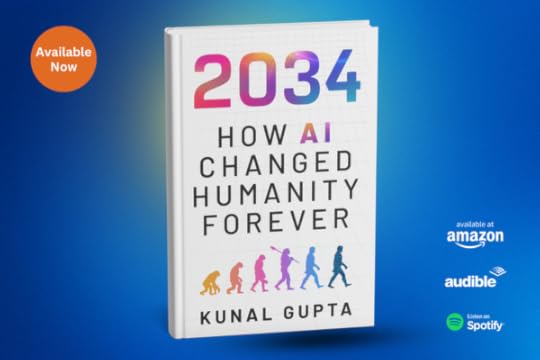
January 12, 2025
How to Australian Open

Sitting in the stands at the Australian Open, I watched a tennis rally that seemed to stretch time.
Nearly one minute passed as the players exchanged shot after shot, each return more precise and more powerful than the last. The crowd leaned forward, collectively holding its breath, each swing of the racket pulling us further into the tension. When it finally ended, the tennis ball grazing just beyond the baseline, the applause erupted with the kind of energy only a live sports moment like that can summon.
What struck me, though, was that looking at the player’s facial expressions, it wasn’t immediately clear to me who had won the point. Both wore the same expression—a blend of satisfaction and exhaustion. They shared a quiet understanding that the rally itself, not the outcome, was the real achievement. Another real life reminder for me that the journey matters more than the destination.
That moment brought me back to my own days on the court. I played tennis for nearly a decade in childhood, a few times a week with consistency. One of my clearest memories is of playing with Peter, a childhood friend. Peter was better than me—not so much better that he’d grow bored, but just enough to keep each other engaged. I could beat him only about a third of the time, but only after working harder than I thought possible.
Our matches would become a valuable life lesson for me that continues to give. Playing against Peter taught me that growth often comes from being challenged by someone better, stronger, or smarter. His skill pushed me to improve, to try hard, and to sharpen my own abilities. That lesson has stayed with me, far beyond tennis. If I find myself in a room where I’m the most skilled or knowledgeable, it’s a signal to seek out new challenges. Growth doesn’t happen in comfort. It happens in the long rallies—where effort, not ease, defines the moment.
Despite my years of playing tennis, I’ve never felt the need to pick up a racket again as an adult. Even watching Djokovic at the Australian Open, one of the greatest players of our time, didn’t stir in me any desire to return to the court. Instead, I feel a quiet peace.
Tennis had its spotlight in my life, and I’ve let it go. There’s something freeing about releasing a part of my past, not out of frustration or loss, but from a place of satisfaction. I did it. I loved it. And I’ve moved on because I feel complete.
Each year, I set a one-word intention to help guide the year and this year, my one word is inspire. While it’s still early into the new year, this intention is already shaping me. Inspire isn’t just about seeking out what moves me; it’s also about recognizing what doesn’t.
Watching the Australian Open, I wondered if this experience would inspire me to visit Wimbledon or the French Open while I’m in Europe later this year. I’ve already seen the US Open, so attending all four Grand Slam events could have been a fun challenge. But as I sat there today, watching the game unfold, I realized it didn’t inspire me. And that, too, is part of my intention. Knowing what no longer inspires me is just as valuable as discovering what does.
That long rally I witnessed today at the Australian Open wasn’t a feat of sport; it was a metaphor for my life. It reminded me that life’s greatest moments and meaning are often found in the process, the effort, and the endurance—not in the outcome. The rally is the reward.
And that is how I learned to Australian Open.
2034: How AI Changed Humanity Forever is my newest book and now available on Amazon on Kindle, paperback, hardcover or audiobook. You can also listen to it narrated by me on Spotify.

January 4, 2025
How to Experiment

Experimentation has been the lifeblood of my philosophy as an adult. Like a scientist in their laboratory, I've transformed my life into a continuous series of thoughtful explorations.
Unlike goals and plans that have specific outcomes and expectations in mind, experimentation offers a different path—one without rigid expectations. It is the ultimate expression of the age-old spiritual teaching found in many scriptures: focus on the journey over the destination. Experimentation has become my way of putting this teaching into action.
I wasn't always this way. For years, I approached life like an equation to be solved, setting rigid goals and becoming frustrated when variables wouldn't cooperate. After taking a traditional approach to life and feeling unsatisfied with how I felt, despite often achieving what I had set out to do, I decided to change my approach to be less attached to outcomes.
At the start of each year, I like to set intentions.
The first task is to pick a one-word theme to guide my choices throughout the year. This is my North Star, helping me make decisions, big and small. Last year, my one-word theme was Flow, which taught me to release control and trust the natural rhythm of life. This year, it is Inspire.
The one-word intention is purposefully broad and abstract, allowing space for it to unfold and manifest however it chooses to as the year progresses. If you have not yet picked a word as your theme for 2025, I encourage you to do so. Now.
Next are choosing a set of priorities—usually three to five areas of life that I wish to focus my energy on. These are fairly obvious categories, such as health, relationship, career, family, learning, writing, giving, and more. What's less obvious though are the relative prioritization of them and the implicit trade-offs needed to really call them priorities.
And next comes choosing my experiments. Last year, I had two experiments: Unscheduled and Unplugged.
Unscheduled was an experiment to bring to life my intention of Flow by relying less on calendaring and planning things in advance. After decades of being ruled by my calendar and commitments, adopting an unscheduled mindset gave me permission to be more spontaneous, to tune into how I was feeling and what I was needing. I loved it, and now it has become a natural part of my rhythm in life.
Unplugged was an experiment to see how many days I could disconnect from my phone completely—no email, no WhatsApp, no social media, no news. I ended up getting a second phone to support the experiment, which had only basic utilities such as Uber and Google Maps that I realized I needed for daily life. I tracked this experiment and had 63 days in 2024 without connection to the world. It was much higher than I would have guessed, and I appreciated each day that I unplugged from technology to connect more deeply.
As I brainstormed in my journal this morning about experiments for 2025, several ideas emerged, each aligned with my one-word intention of Inspire.
In the realm of health, I'm curious about tracking days of fitness activity across strength, flexibility, and endurance, as well as documenting the changes I notice with regular red light therapy with my new home panels.
For professional growth, I'm considering challenging myself to avoid checking the stock market before noon, after noticing how market fluctuations influenced my daily mood last year.
I'm also excited about expanding my AI toolset beyond ChatGPT, which I currently use 30 to 40 times daily, to discover new tools that I can incorporate into my daily lifestyle.
I continue to love writing and appreciate all of the encouragement I receive from those around me about my books and my blogs. I am curious to see how many books I write and publish this year.
What's important to me with experimentation is avoiding specific goals or targets. That creates pressure and dramatically shifts the energy with which I approach the activity. The joy of experimentation lies in not knowing—or frankly caring about—the result, instead finding delight in the process itself.
The other powerful benefit of framing activities as experiments is their defined timeframe. An experiment has a clear beginning and end. When I commit to exploring something for a specific period, it becomes more approachable than making a lifetime commitment.
Through years of living this way, I've discovered that experimentation isn't just a method for personal growth—it's a mindset that transforms challenges into adventures and uncertainties into opportunities for discovery.
Each experiment has shaped my understanding of myself and the world around me. This is the true art of experimentation: finding wisdom in the willing exploration of life's possibilities.
And that is how I learned to experiment.
2034: How AI Changed Humanity Forever is my newest book and now available on Amazon on Kindle, paperback, hardcover or audiobook. You can also listen to it narrated by me on Spotify.

December 30, 2024
How to 2025

I start each year with a simple ritual that has really shaped my journey: selecting a single word to serve as my guiding intention for the year ahead.
This one word intention acts as a North Star, gently steering my choices and actions without the rigidity of specific goals or resolutions. Unlike objectives, a one word intention is fluid and adaptable, allowing for growth and re-alignment as the year unfolds.
The process of discovering this one word intention involves meaningful reflection. I meditate, journal, or spend time in nature to tune into what feels most significant for the year ahead. Often, the right word resonates on an emotional level—a spark of excitement, a sense of alignment, or a quiet knowing that this is what I need.
Last year, my one-word intention was Flow. In previous years, my one word intention has been Discovery, Fearless, Trust, Space, Heart and Open to share a few. These words are intentionally abstract and expansive, inviting me to explore their meaning across different aspects of my life.
Yesterday, as I was journaling on how Flow showed up for me this year, I was in awe with how many instances it shaped the course of the year, and as a result, the course of my life. From spontaneous travel, to new and meaningful connections, to discovering hidden hobbies and interests, Flow gave me the space to be curious about what might just happen.
It also represented a shift for me from often forcing a specific outcome or result from a situation. Learning to flow and not force really was a gamechanger for how I felt. With this refined skill in hand, I saw myself develop greater acceptance versus tolerance for unexpected or undesired events.
I am so grateful that I had Flow as an intention by my side to guide my past year.
My one word intention for 2025 is Inspire.
It is giving myself permission and space to be attracted to the projects, places and people that most inspire me. It is a prompt for me to dig deeper within myself to connect with what makes me feel inspired. And to not be shy to continue to share more of my journey with others.
Once I’ve chosen my one word intention, I like to share it with close friends and family. This not only reinforces my commitment but also invites their encouragement and support. Sharing this intention often deepens my connections and can inspire others to also set their own one word intention for the year ahead.
What is your one word intention to inspire 2025?
Below are a few one word intentions friends have used in past years to help inspire yours. Take time to reflect, connect with your inner world, and allow the right word to find you.
Acceptance
Adventure
Authentic
Awareness
Balance
Bold
Build
Challenge
Commitment
Compassion
Confidence
Connection
Control
Courage
Create
Discovery
Energy
Explore
Fearless
Flow
Focus
Freedom
Fun
Giving
Grace
Gratitude
Grounded
Growth
Harmony
Heart
Humility
Integrity
Joy
Learn
Light
Open
Play
Positive
Presence
Relax
Respect
Self Love
Serve
Simplify
Space
Surrender
Trust
Zest
2034: How AI Changed Humanity Forever is available today globally on Amazon on Kindle, paperback, hardcover or audiobook. You can also listen to 2034 narrated by me on Spotify.

December 29, 2024
How to 2024
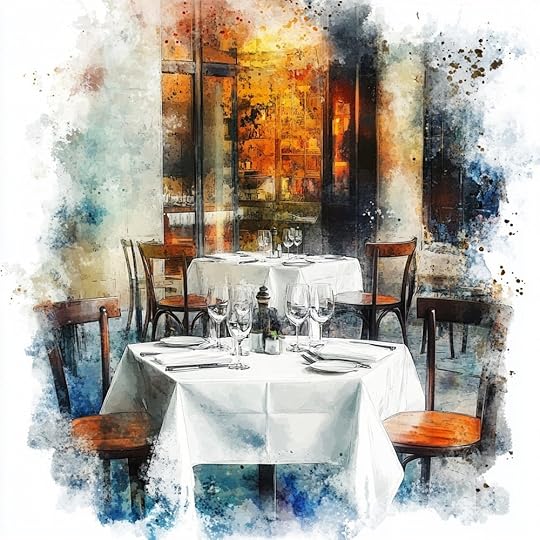
The waiter had just taken our order. The conversation with friends over dinner had settled into that familiar, easy rhythm you get with close friends.
I glanced around the table and asked innocently, “What was your biggest moment of 2024?”
Smiles bubbled up almost instantly. People leaned in, animated and eager to share. One friend recalled a career leap they hadn’t planned for. Another shared the obvious —becoming a parent. Someone else brought up a spontaneous weekend trip their partner surprised them with.
These were stories of celebration, achievements and experiences that stood out.
Then I followed with, “What was your most challenging moment of 2024?”
The energy shifted. More pauses this time. A few long sips of drinks.
I intentionally did not start, as a way to acknowledge the discomfort that some likely felt. Then slowly but surely, the responses started to come. Honest, vulnerable, a little rough around the edges. Someone opened up about burnout. Another mentioned losing someone they loved. A breakup. A health scare with a parent.
These were stories of the kind of moments we don’t always rush to revisit but shape us in meaningful ways. By the time our food had arrived, there were hugs, high fives, and that unspoken feeling of being in it together.
It struck me how much lighter the room felt once everyone had shared. Like the weight of those hard moments wasn’t something to carry alone anymore.
This time of year always feels like a harvest for me. This is the final stretch —a time to gather what the year has grown.
I become curious to uncover how I have been delighted or disappointed this year, how I have grown and how I have changed.
Unlike delight or disappointment, growth and change rarely feels obvious while they are happening. It is only when taking a moment to look back do I begin to notice the changes in myself, then I can begin to integrate them more fully and carry them with me as I move forward through life.
Travel was painted all over my 2024. I travelled to fifteen countries. But when I reflect about the places I’ve gone, the stamps in my passport aren’t what come to mind. It’s the moments – the small ones, the unexpected ones – shared with friends and family.
Scrolling through photos on my phone, which I rarely do but hope to do more often, transports me back to these moments instantly. I love it.
Investing became another big theme for my 2024. I gave myself permission at the start to learn about the public markets this year. I’ve never been that interested in the stock market, but I felt it was time for me to experiment and see what I would learn.
I learned about my own tolerance for risk and volatility. I learned about the world through a financial lens. I learned firsthand how difficult it is to beat the index. And I learned that I enjoy the process of learning something new.
Health was a rollercoaster, with many ups and downs. I had stretches where I felt great – waking up early, moving every day, feeling strong. And then, there were weeks when I would struggle with symptoms for an undiagnosed issue. The mental energy I spent trying to care for my physical health felt disproportionate at times. There’s still work to do here. But I’m learning to meet myself where I am, instead of where I think I should be.
Relationships evolved as well. 2024 started with a deep dive into family systems therapy – something I hadn’t explored before. It helped me mature and evolve how I connect and integrate with my parents and sister in ways I didn’t expect – and am highly appreciative of.
I spent more time outside Europe than in it this year, which meant less time with my Lisbon and London crew. There were many moments I felt the absence of the familiarity of friends who I have grown closer to over the past few years living in Portugal. But there were also new friendships and experiences that wouldn’t have developed if I’d stayed in one place.
As I gather the harvest of 2024, I feel grateful – for the joy I shared, the growth I witnessed, and the hardships that asked me to pay attention and make changes.
Now is an important time to make peace with the past, so that we do not unnecessarily drag unfulfilled desires and lingering disappointments into the future and can start 2025 with a blank slate, aligned and connected with what we value and need most at this moment.
Sharing with others close to me how my 2024 shaped me, and hearing about how their year has shaped them, has become a wonderful practice of closure and connection to finish the year.
And that is how I learned to 2024.
2034: How AI Changed Humanity Forever is available today globally on Amazon on Kindle, paperback, hardcover or audiobook. You can also listen to 2034 narrated by me on Spotify.

December 22, 2024
How to Harvest
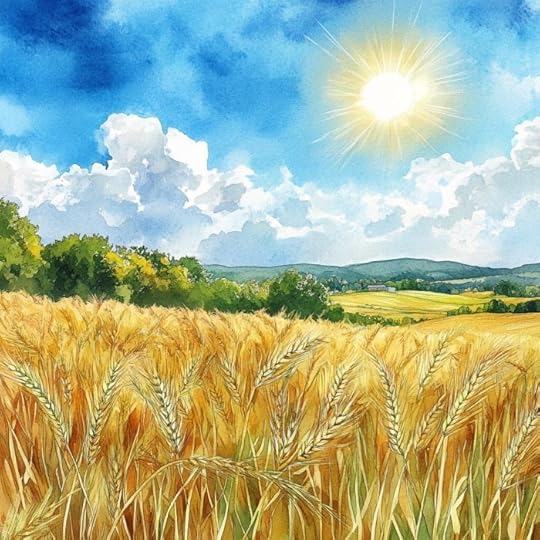
This is a sacred time of the year for me, holding more meaning than even my birthday.
There's something about the end of the year that creates a natural invitation to pause, to reflect and to harvest. To take stock of what was, what was not, and to make space for what might be.
The rush of daily life softens into something gentler. Like driving on an open highway – when I'm going too fast, all the signs blur together. It's only when I slow down that I can actually read what they're trying to tell me.
The same thing happens in my inner world. When I allow myself to slow down and take space, I start seeing signs that have probably been there all along. Signs pointing toward needed changes, toward growth, toward truth.
To harvest starts with slowing down. Giving myself permission to do less, talk less, be less, and go less. And from this place of less, I often find more. More clarity. More acceptance. And more peace.
To make peace with the year is the first step before I can even begin to think about my next year. When I don't fully acknowledge and accept my past, my future becomes tainted. I end up dragging unresolved feelings and disappointments into my future plans, trying to compensate or make up for what I may not feel great about. I then start the new year with a feeling of being in ‘debt’ and having to ‘catch-up’. It’s a terribly uninspiring starting point.
This is why making peace with my past has become such an important harvesting ritual for me.
Here are six reflection prompts I encourage you to write, reflect and share with someone close to you, to help harvest your past year.
1. My highlights of 2024…
2. My most difficult moments of 2024…
3. What I learned about myself in 2024…
4. How my identity evolved and changed in 2024…
5. Who I am most grateful for in 2024…
6. What my heart most desires now at the end of 2024…
Reality is full of the wisdom that I need to hear. This is a time for inner harvest. The fields are ripe for picking and this end of year ritual is my invitation to make the space to see what this year’s crop had for me.
And that is how I learned to harvest.
2034: How AI Changed Humanity Forever is available today globally on Amazon on Kindle, paperback, hardcover or audiobook. You can also listen to 2034 narrated by me on Spotify.

December 15, 2024
How to Unplan
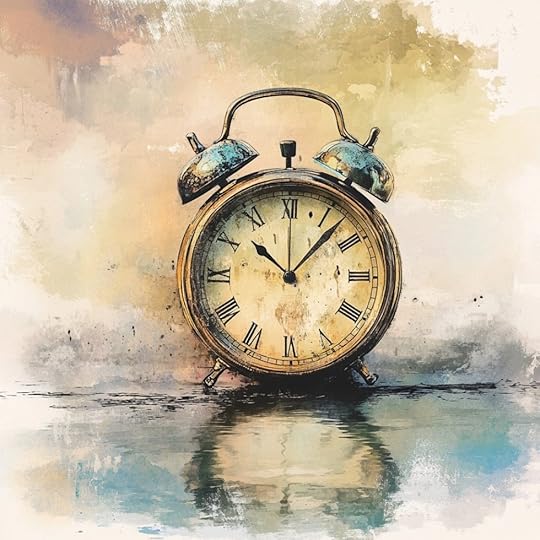
I used to live a life ruled by plans.
As a CEO for 15 years, I thought planning was my superpower—strategy decks, quarterly targets, financial forecasts, calendars crammed with back-to-back meetings.
My personal life wasn’t much different. Living in New York for 10 years, I got used to planning everything: yoga classes booked weeks ahead, dinner reservations meticulously timed, dates squeezed in. I had mastered the art of control—or so I believed.
Three years ago, I moved to Portugal.
At first, I tried to carry this same hyper-planned approach with me. I scheduled my days the way a New Yorker would, expecting precision and efficiency. But Portugal doesn’t work like that. My plans didn’t just fall apart—they were ignored entirely. Appointments shifted without warning, restaurants closed early or opened late, and time seemed to flow at its own unhurried pace.
At first, I fought against it. I was critical of the inefficiency, irritated that things didn’t work on my timeline. But slowly, I realized it wasn’t the culture that needed to change—it was me.
As I started to let go, I noticed something unexpected: the stress and anxiety of forcing my plans disappeared. Instead, I began to experience the delight of the unplanned—the spontaneity, the freedom, the surprise.
Moments like these planted a seed of doubt in my obsession with planning. For so long, planning felt like security, like the scaffolding holding my life together. But as I started to let go of those rigid plans, I realized they weren’t security at all—they were shackles. I had been clinging to the illusion of control, mistaking busyness for meaning, and I began to wonder what would happen if I planned less.
The world doesn’t make it easy to live life unplanned though. Society glorifies planning and rewards it. Book a flight early, and you’ll pay less. Make a reservation, and you’ll avoid disappointment. Productivity apps promise to organize every second of your day. Planning feels responsible, even virtuous. But more and more, I’ve come to see that planning isn’t about control—it’s about trying to deny the nature of reality.
Reality knows that I’m not in control. Plans fail. Flights get delayed. Things fall apart. I’ve been stuck in airports for hours or had flights canceled entirely, and I can’t recall the last time I felt anger or frustration in those moments. Instead, I’ve come to accept them as part of life’s flow. The energy I used to spend resisting what was happening now goes toward responding to it.
Living an unplanned life isn’t the same as living chaotically. It takes a deliberate trust—trust in myself, in the process, and in life itself. It’s a skill I’m still learning.
This year, my one-word intention has been Flow, and it’s shaped me. Flow has helped me to let go of expectations and respond to life as it happens. It’s not about passivity; it’s about presence.
Letting go of plans also builds resilience. There’s no denying that the unknown is intimidating, but it’s also exhilarating. Each time I’m faced with an unexpected turn, I grow a little stronger. I’ve come to trust that I’ll handle whatever comes my way. And the more I embrace this trust, the more confident I feel. It’s a feedback loop: resilience builds confidence, confidence makes uncertainty less daunting, and that makes planning less necessary.
Looking back, my years in New York conditioned me to plan for everything. My years in Portugal have shown me the beauty of planning for nothing. Neither is inherently better—it’s just that one way no longer serves me.
When I think about the moments that have brought me the most joy, none of them were planned. They were the spontaneous turns, the unanticipated encounters, the surprises that life delivered when I left space for them.
The unplanned life isn’t perfect—it’s messy, unpredictable, and at times unnerving. But it’s also alive, rich with possibility, and full of surprises I could never orchestrate. Letting go of planning has been my way of saying yes to life, exactly as it is. And in doing so, I’ve found more freedom, more joy, and more trust in the process than I ever thought possible.
And that is how I learned to unplan.
December 8, 2024
How to Friend

“What brings you to town?” was the question I continued to hear over the past month.
“To see you!” I’d say enthusiastically every time, and their reactions always caught me off guard. Some laughed, others paused, surprised, as if visiting friends wasn’t reason enough.
I just wrapped up a whirlwind tour across the globe over the past four weeks—Singapore, Canada, Chile, Portugal, and the UK. At every stop, everyone assumed I had some professional reason for visiting. It felt good to say it out loud. This trip wasn’t about work. It wasn’t about sightseeing or ticking off countries. It was about reconnecting—with people I care about, with the places that feel like home, and, in many ways, with myself.
As an expat moving between cities throughout the year, friendships have become a conscious effort.
I’ve found myself gravitating toward a few hub cities—places I’ve lived, loved, or traveled to often enough that they feel like an extension of me. These cities are more than just familiar places I know where to eat, how to get around and how much things are meant to cost. They’re touchpoints to my past and present. Spending even a few days in one of these places doesn’t just recharge me—it reminds me of who I am in the company of people who know me best.
It’s said that life is a journey of self-discovery, and while that can take a lifetime, I’ve learned that putting myself in different environments can speed up the process. Meditation and journaling are helpful for quiet reflection, but there’s a different kind of clarity that comes from being with others. Friends bring out different sides of me, sometimes ones I’ve forgotten or neglected. Their perspectives can act as mirrors, reflecting back parts of myself that I can’t always see.
I’ve long believed that “we are the company we keep.” Research supports this, showing that we are the average of the five people we spend the most amount of time with. This is reflected in our health, our spending and saving habits, our travel, our hobbies and more.
Looking back, the company I kept as a child was mostly circumstantial—neighbors, classmates, the kids I sat beside in school because their last names were right before or after mine alphabetically. These relationships shaped my early years, even if I didn’t realize it at the time.
By university, friendships started forming around shared interests—classes, conferences, the things we cared about deeply as young adults. Later, in my 20s, my friendships reflected the phase of life I was in. Fresh out of school and building a company, I spent most of my time with other tech entrepreneurs. We were navigating similar challenges and found solidarity in each other’s energy, struggle and ambition.
When mindfulness became a cornerstone of my life, my circle naturally shifted to include meditators and yogis. We supported each other through shared practices and personal growth. Later, as I transitioned from being a business operator to a business owner, I sought out people who had successfully made that shift, learning from their experiences as a financial investor.
Now, with an increasing focus on health and longevity, I’m surrounded by friends who are just as curious about optimizing their well-being. Together, we try new routines, experiment with therapies, and share our data and discoveries.
But some friendships endure regardless of the stage of life I’m in. These constants remind me that while life changes, certain relationships remain foundational. They’ve been there through my evolving interests, shifting geographies, and personal growth, and they continue to feel as vital as ever.
As I’ve grown older, friendship has become less about circumstance and more about choice.
Now, I think carefully about the kind of person I want to become and the qualities I want to nurture in myself. Then, I seek out people who embody those traits. Sometimes they’re already within my circles, and all it takes is intention to deepen the connection. Other times, it means stepping outside my comfort zone to meet new people who inspire me.
When I think about the role of friends in my life, a few things stand out.
They help me feel connected, less alone. They offer support at moments I didn’t realize I needed it. And they remind me that living well isn’t just about physical health or career success—it’s about the quality of our relationships. Studies show that strong friendships are one of the most significant predictors of longevity and well-being. That feels deeply true to me.
Friendships are distinct from family, partners, or colleagues. They hold a unique place in the tribe of relationships that shape a life. And as I’ve learned, they require intentionality. It’s not enough to rely on chance or history to keep them alive.
This past month, enduring flights and jetlag, traveling to see the people who matter to me wasn’t just about staying connected—it’s about honoring the relationships that make me who I am. And every time I show up for them, I realize I’m also showing up for myself.
And that is how I learned to friend.
December 1, 2024
How to Less
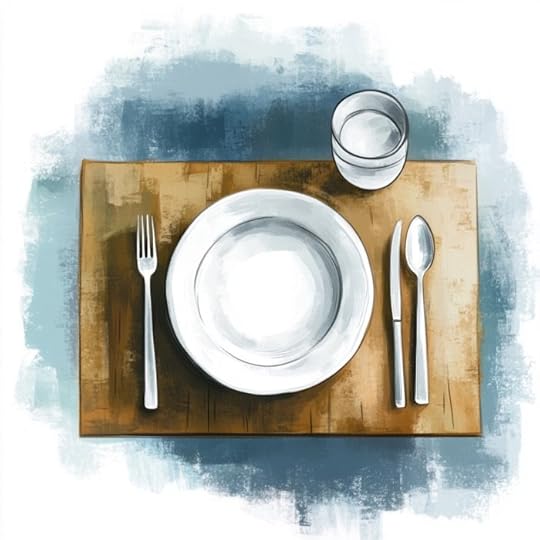
The other day while sitting at a cafe, I found myself staring at a laptop on the table next to mine while the person had stepped away for a moment. I couldn’t help it. The person’s color coordinated calendar was up and so was their very long to-do list. Meetings to attend, projects to finalize, friends to catch up with, errands that had been postponed.
It looked exhausting, and likely felt exhausting. And reminded me of my time while running a company and as a result, running myself mad with a maniacal focus on always trying to cram more in.
“More is more” was the mantra that had driven me for years. As I started to question this philosophy, I began to experiment with a different mantra: “less is more”.
Acting on it meant something very uncomfortable: making trade-offs.
Life, at its core, is about making trade-offs. It’s about choosing one thing over another, not because one is inherently good and the other bad, but because in choosing, I give weight to what matters most. Without trade-offs, I’m not really making decisions; I’m just moving through the motions, saying yes to everything, and hoping it will all somehow work out.
But it doesn’t work out. At least not well. It’s easy to say yes to everything, to try to be everything to everyone. The harder thing, the thing that feels unnatural, is to say, “this is more important than that.”
In a professional environment, I’ve seen this truth play out repeatedly. Over the years, I’ve come to believe that when someone feels overworked, it’s not because there’s too much work. It’s because no one—either the person or their organization—has had the courage to make the necessary trade-offs. No one has said, “this project matters more than that one,” or even better, “we don’t need to do this at all.”
When I think about my own approach to business, I’ve leaned toward setting priorities over setting goals. Goals, while helpful in some contexts, can be limiting because they’re specific and static. They tend to define success in rigid terms, ignoring the fluidity of reality. Priorities, on the other hand, are dynamic. They aren’t about what I want to achieve but about the trade-offs I’m willing to make. They force me to ask: “What am I willing to let go of in order to focus on what truly matters?”
This shift has been liberating. When I focus on my priorities, I can accept the outcomes, whatever they may be. I don’t cling to the false comfort of goals that feel incomplete or unmet. Instead, I remind myself that I’ve chosen to invest my time and energy where it counts most, and I’ve made peace with whatever outcome results from that investment.
Of course, trade-offs aren’t just about work. They show up in every corner of life. To be in a romantic relationship with one person often means giving up the possibility of exploring romantic relationships with someone else. It’s the trade-off that creates the foundation for commitment.
Even in friendships, the choices are constant. To hang out with this friend might mean not spending time with another. To show up for one person’s party may mean missing someone else’s. There’s nothing wrong with these decisions—they’re simply the reality of how time and relationships work.
Travel is another example that comes to mind. To vacation in one place is to not go somewhere else. Even within a single destination, there are trade-offs. I might choose to see one landmark and skip another, or decide to relax on the beach instead of exploring the city. Every decision, no matter how small, comes with its own set of sacrifices.
What makes trade-offs so challenging is that they force me to confront something deeply human: the need to please, to be liked, to avoid disappointment. Saying no can feel like failure or rejection, even when it’s necessary. There’s an inherent discomfort in prioritization because it requires honesty. It asks me to admit that I can’t do it all, that I can’t be everything to everyone, and that trying to do so often leaves me with nothing that feels real or meaningful.
I’ve come to see that making trade-offs is the only way to live with intention. It’s not about limitations; it’s about clarity. It’s about recognizing that my time, energy, and attention are finite.
Trade-offs I make aren’t about what I lose but about what I gain. They aren’t about saying no but about committing fully to my yeses. And when I live that way—when I prioritize with intention and let go of the rest—I find a sense of freedom that no goal could ever give me.
And that is how I learned to Less.
November 24, 2024
How to Zip Line
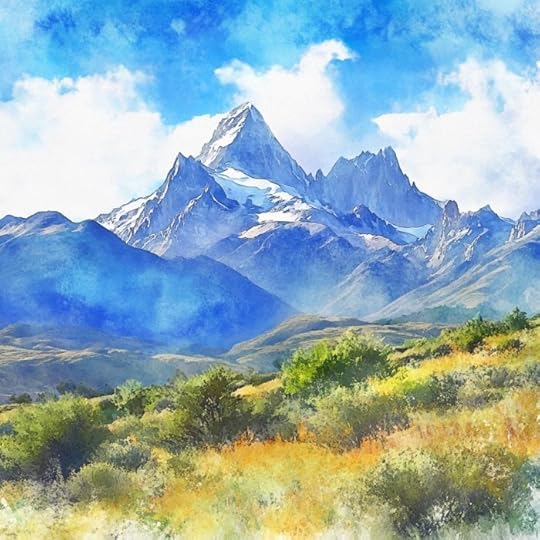
There’s something magical about being tucked away in the mountains of Chile, surrounded by friends both old & new. We were there for a wedding celebration—a group of thirty people, brought together for a week. With barely any cellular reception or WiFi, the usual distractions faded away. We were present in the truest sense, and the sense of connection was refreshing given the fast paced life we all live.
One morning, our hosts handed out a sign-up sheet for activities: hiking, white-water rafting, horseback riding, or zip lining. My eyes stopped at zip lining, and a memory from nearly ten years ago surfaced. I was in Costa Rica then, standing on a zip-lining platform for the first time, heart pounding, legs trembling. But I still remember the thrill of that leap, the way it felt to fight a fear of heights and soar inside and out. That day had been about leaning into adventure. I felt called to do it again.
As we hiked up to the first platform, the forest came alive around us. The trees seemed endless. The air smelled crisp and earthy, and the sounds of rustling leaves and distant birds were all around. But as we approached the first line, my stomach churned. My palms were sweaty, and every glance down at the ground below made the distance seem even greater.
Yet being surrounded by friends was grounding. Their laughter cut through my nerves, their encouragement softened the edges of my fear. We were in this together, the energy building as each person prepared to leap.
When my turn came, I stepped forward, was clipped in, and took a deep breath. The guide smiled and said, “Lean back, trust the line.” With one final inhale, I pushed off.
It was over in seconds, but it left a mark—a mix of exhilaration and disbelief. I’d done it. Again.
The second line came easier, the fear loosening its grip. By the third, I was grinning. A few lines later, I was volunteering to go first, laughing as I jumped into the void. Each time, I felt a feeling of sadness when the line ended, like waking up from a dream I didn’t want to end.
What struck me most wasn’t just the thrill of the zip line. It was the way the experience awakened something childlike in me—a joy that felt pure and unburdened. It reminded me of summer camp, of days spent outdoors with friends, trying new things, and simply being in the moment. There’s something about pushing through fear that makes the fun on the other side feel so much sweeter.
And then there was the four-year-old in our group. She stepped up to the platform with a calm confidence that took my breath away. After her first line, she didn’t just want to go—she wanted to go first. Watching her was humbling. She didn’t carry the weight of fear that we adults do. It reminded me of when I started my first company at 20, bold enough to jump into the unknown simply because I didn’t know any better. That kind of untested bravery can be a gift.
What made the day unforgettable wasn’t just my own transformation, it was seeing everyone else overcome their fears, cheering them on, and feeling their excitement as if it were my own.
I thought about the difference between joy and enjoyment I had once heard. Joy is what you feel in your own heart—private, personal. Enjoyment is when joy is shared with others. It amplifies everything. It’s what made this day more than just a series of zip lines. It was a shared connection and experience between all of us. Similar to sport, music, food and even work.
I can see how my zip lining experience mirrors life. It’s an adventure that requires trust, courage, and the willingness to step into the unknown. It’s scary and thrilling and beautiful all at once. And the best moments aren’t just about what I experience—they’re about who I share them with. Even though the journey is fleeting, the connections we make along the way are what stay with us.
And that is how I learned to zip line.



